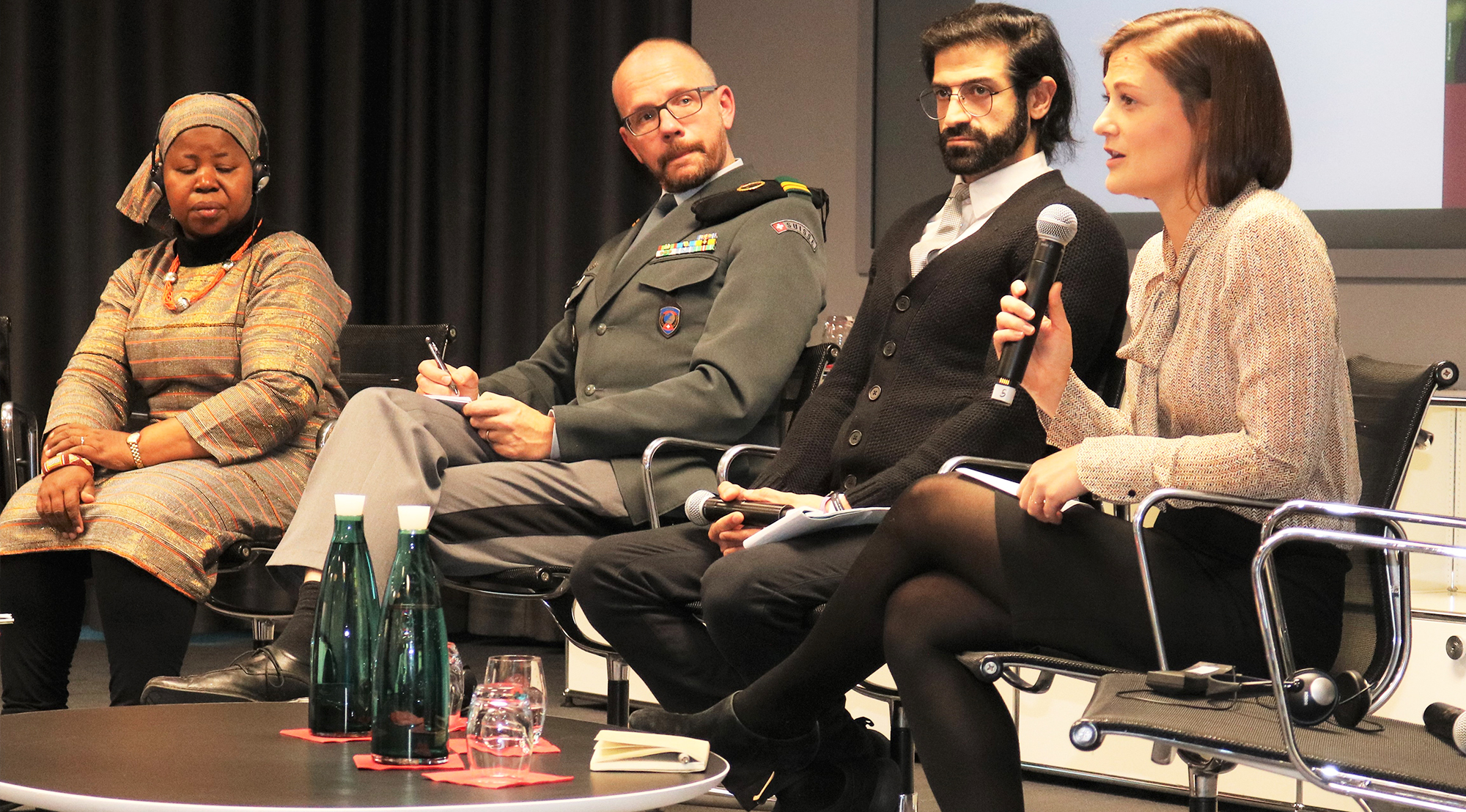Women, Peace and Security: Civil Society’s Critical Voice
On 22 November 2018, the Federal Department of Foreign Affairs (FDFA) launched Switzerland’s fourth National Action Plan to implement UN Security Council Resolution 1325 on women, peace and security in Geneva. This is an important domestic and foreign policy instrument for Switzerland as it lays the foundation for a gender-sensitive peace policy. One focus is the role of women and gender in the prevention of violent extremism. Swiss civil society critically looks at the impact of this objective on women and gender roles in peacebuilding and violence prevention.
The adoption of the UN Resolution 1325 on Women, Peace and Security in 2000 was considered a milestone for women’s rights. For the first time, the UN Security Council demanded that more women be involved in conflict prevention and peace processes worldwide, and that women be protected from violence in conflicts. In the implementation of the resolution, member states have traditionally focused on the participation of women and the protection against violence. Switzerland’s fourth action plan sets new priorities and defines the inclusion of women in the “prevention of violent extremism” as an important goal for effective conflict prevention.
Fifteen non-governmental organizations from Swiss civil society have committed themselves to taking a critical look at the implementation of the action plan and strengthening the relevance of the policy instrument for practice. They advocate a critical examination of the role of gender in peacebuilding and violence prevention. As part of the first phase in a four-year project, we are looking into following question:
– What roles do women play in the prevention of conflict and violence, both within and outside the framework of the “preventing violent extremism” agenda, which is strongly shaped by security sector approaches?
– How can feminist approaches to women’s roles in conflict, violence prevention and peacebuilding be reconciled with the security agenda?
– What does the promotion of women’s participation in efforts to “prevent violent extremism” look like in practice? What impact does this focus have on women and women’s civil society organizations?
The project is coordinated by three peacebuilding organizations: KOFF – the Swiss Platform for Peacebuilding; cfd – the feminist peace organization and PeaceWomen Across the Globe


